Tax Planning for Freelancers in Pakistan: A Complete Guide
Published on: April 29, 2025

Freelancing in Pakistan has grown significantly, with professionals offering services in IT, content creation, design, and more. However, many freelancers struggle with tax compliance and financial planning. Proper tax planning for freelancers in Pakistan ensures legal compliance, minimizes liabilities, and maximizes earnings.
At ICT (Institute of Corporate Training), we provide expert guidance to help freelancers navigate tax laws efficiently. This guide covers essential tax strategies, deductions, and filing processes tailored for freelancers.
Understanding Freelancer Taxation in Pakistan
Freelancers in Pakistan fall under the self-employed category and must file taxes under the Income Tax Ordinance, 2001. The Federal Board of Revenue (FBR) requires freelancers to register and declare their income, whether received locally or internationally.
1. Who Needs to Pay Taxes?
- Freelancers earning above PKR 600,000 annually(taxable threshold).
- Professionals providing services to local or international clients.
- Individuals registered as sole proprietors or AOPs (Association of Persons).
2. Tax Slabs for Freelancers
Income Range (PKR) | Tax Rate |
Up to 600,000 | 0% |
600,001 – 1,200,000 | 2.5% |
1,200,001 – 2,400,000 | 12.5% |
2,400,001 – 3,600,000 | 20% |
3,600,001 – 6,000,000 | 25% |
Above 6,000,000 | 35% |
Effective Tax Planning Strategies for Freelancers
1. Register with FBR & Obtain NTN
- Obtain a National Tax Number (NTN)through the FBR’s Iris portal.
- Register as a filerto avoid higher withholding taxes on transactions.
2. Maintain Proper Financial Records
- Track income and expenses using accounting software (QuickBooks, Zoho Books).
- Keep invoices, bank statements, and payment receipts for audit purposes.
3. Claim Allowable Deductions
Freelancers can reduce taxable income by claiming:
- Home office expenses(internet, utilities, rent).
- Software & tools subscriptions(Adobe, Canva, Upwork fees).
- Travel & client meeting costs.
- Professional training & certifications (ICT courses qualify as deductible expenses).
4. Separate Business & Personal Finances
- Open a dedicated business bank accountto streamline transactions.
- Avoid mixing personal and business expenses for easier tax filing.
5. Opt for Tax Credits & Rebates
- Tax creditson advance tax payments.
- Rebatesfor IT freelancers under the IT sector incentives.
6. Pay Advance Tax (If Applicable)
Freelancers earning above PKR 800,000 must pay advance tax in quarterly installments to avoid penalties.
Common Tax Mistakes Freelancers Make
❌ Not filing returns (leads to penalties & higher withholding taxes).
❌ Underreporting income (risks FBR audits).
❌ Ignoring foreign income taxation (income from Upwork, Fiverr is taxable).
❌ Missing deductible expenses (losing potential tax savings).
How ICT Can Help Freelancers with Tax Planning
At ICT (Institute of Corporate Training), we offer:
✔ Tax compliance workshops for freelancers.
✔ Customized financial planning sessions.
✔ Guidance on FBR regulations & deductions.
Conclusion
Smart tax planning for freelancers in Pakistan ensures compliance, reduces liabilities, and boosts savings. By maintaining records, claiming deductions, and leveraging expert advice from ICT, freelancers can optimize their finances efficiently.
Need help with tax filing? Contact ICT today for professional tax consultancy!
Categories
Recent Posts
-
How to Register for GST, PST, and NTN in Pakistan: A Beginner's Guide
-
How to Register for GST, PST, and NTN in Pakistan: A Beginner's Guide
-
Income Tax Filing and Refund Course: Become an FBR-Certified Tax Expert
-
Protecting Your Brand: Trademark Registration Process in Pakistan
-
Company Registration and Incorporation in Pakistan: Everything You Need to Know
-
How to Apply for an ITIN, EIN, and Trademark Registration in the USA
-
Monthly GST Return Filing in Pakistan: Deadlines, Process, and Tips
-
Complete Guide to Income Tax Return Filing in Pakistan: Step-by-Step Process
-
Start Your Career as a Tax Consultant
-
Tax Planning for Freelancers in Pakistan: A Complete Guide
-
Understanding Pakistan’s Taxation System: A Guide for Small Businesses
-
Tax Return Filing Courses in Lahore, Karachi, Islamabad
-
US Company Formation and Tax Filing: Federal vs. State Requirements
-
Excise Tax Registration and Return Filing in the UAE: Simplified Process
-
Understanding Transfer Pricing and Tax Audits in the UAE: Key Insights
-
How to Avoid Common Mistakes in Income Tax Return Filing in Pakistan
-
VAT Registration and Corporate Tax Services in the UAE: A Comprehensive Guide
-
How the UAE’s Corporate Tax Impacts Multinational Companies
-
Why Intellectual Property Protection is Crucial for Businesses in Pakistan
-
USA Taxation 101: Key Changes for the Upcoming Tax Season
-
Monthly GST Return Filing in Pakistan: Compliance Guide to Avoid Penalties
-
Monthly GST Return Filing in Pakistan: Deadlines, Process, and Tips

